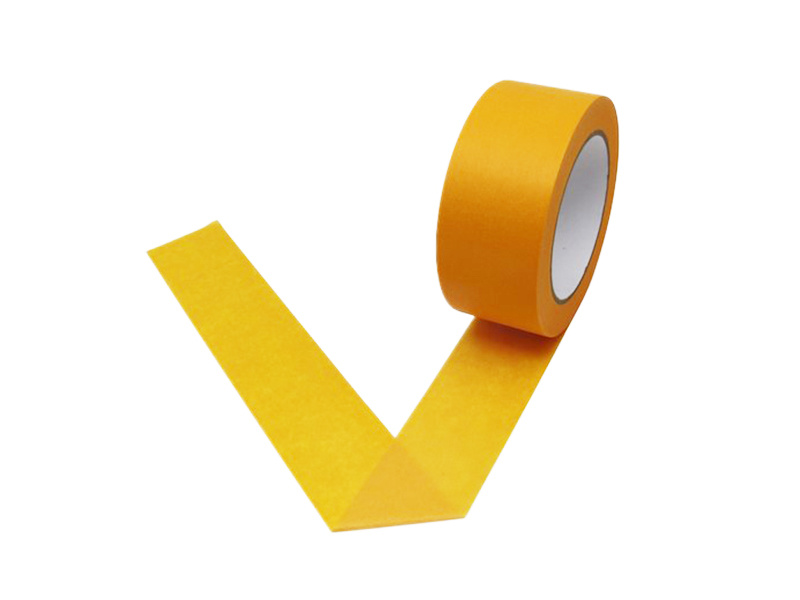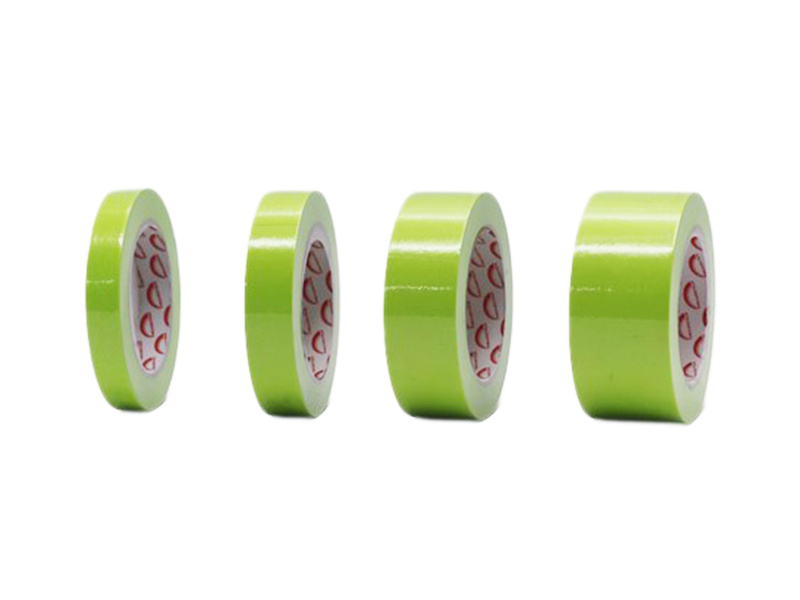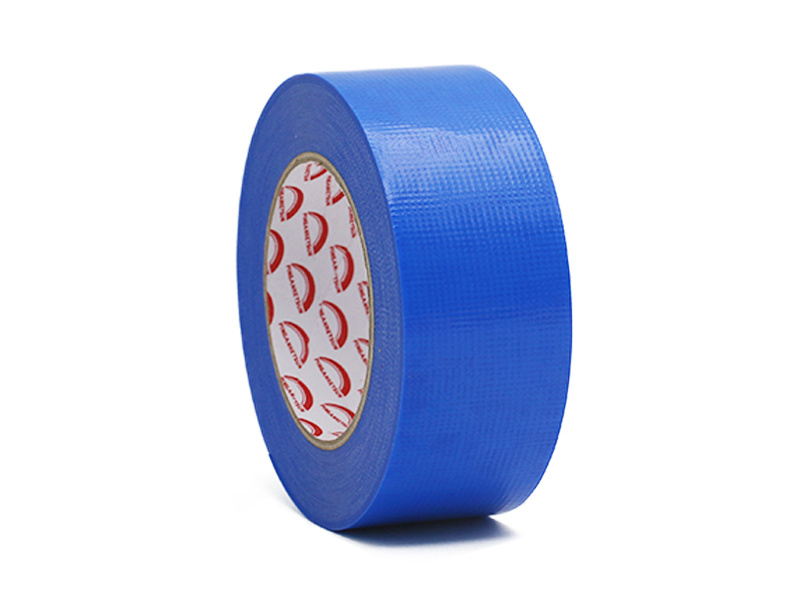Why Quality Matters in General Washi Tape Factories: Understanding the Impact on Performance and Customer Satisfaction
Release Time:
2025-06-16
Source:
Why Quality Matters in General Washi Tape Factories
The Essential Role of Quality in Manufacturing Washi Tape
In the modern marketplace, **quality** is not merely an attribute; it is a necessity that shapes consumer choices and brand loyalty. The washi tape industry, known for its vibrant colors and unique designs, is no exception. With various applications ranging from arts and crafts to packaging, the integrity of **washi tape** plays a pivotal role in its overall performance and consumer satisfaction.
The relationship between quality and manufacturing processes in **washi tape factories** cannot be overstated, as it directly impacts both production efficiency and product reliability. In this article, we will explore why prioritizing quality in washi tape manufacturing is crucial for the success of factories in this competitive landscape.
Understanding Washi Tape: A Brief Overview
What is Washi Tape?
Washi tape, originating from Japan, is a versatile adhesive tape made from traditional Japanese paper known as “washi.” This unique paper is crafted using the fibers of the mulberry tree, giving washi tape its characteristic strength and aesthetic appeal. Its popularity has surged globally due to its ability to be easily removable, reusable, and available in an array of colors and patterns.
Applications of Washi Tape
Washi tape is celebrated not only for its decorative qualities but also for its utility. Its applications include:
- **Arts and Crafts**: Perfect for scrapbooking, journaling, and DIY projects.
- **Home Decor**: Used to enhance walls, furniture, and various household items.
- **Packaging**: Ideal for gift wrapping and adding a personal touch to packages.
- **Office Use**: Utilized for labeling, organizing, and creating visual aids.
The diverse applications of washi tape highlight the importance of maintaining high quality throughout the manufacturing process to meet varying consumer needs.
The Manufacturing Process of Washi Tape
Raw Materials and Their Importance
Quality in washi tape production begins with selecting the right raw materials. The fibers used in making washi paper directly influence the texture, strength, and adhesive properties of the tape. Factories should prioritize sourcing high-quality, sustainable materials that meet industry standards.
Production Techniques that Ensure Quality
Modern washi tape factories employ various production techniques to ensure that the final product meets consumer expectations. Key methods include:
- **Precision Cutting**: Ensuring that each roll is uniform in width and length.
- **Adhesive Application**: Utilizing high-quality adhesives that provide strong bonding while allowing for easy removal.
- **Quality Control**: Implementing stringent quality checks at every stage of production to identify and rectify defects early.
By focusing on these techniques, manufacturers can enhance the durability and functionality of their washi tape.
Why Quality Control is Crucial in Washi Tape Factories
Enhancing Product Longevity
High-quality washi tape is not just about aesthetics; it also needs to perform well over time. Quality control measures help ensure that the tape adheres well to surfaces, resists tearing, and maintains its color vibrancy. Poorly manufactured tape may not adhere properly, leading to consumer frustration and returns.
Building Customer Trust and Loyalty
Consumers are more likely to return to brands that consistently deliver high-quality products. When washi tape factories prioritize quality, they foster customer trust and loyalty. Satisfied customers often become brand advocates, promoting products through word-of-mouth and social media, driving additional sales.
Environmental Considerations in Washi Tape Production
Sustainability in Sourcing Materials
As consumer awareness of environmental issues grows, the demand for sustainable products has increased. Washi tape factories that prioritize quality also tend to focus on sustainable practices, such as sourcing eco-friendly materials and reducing waste. This not only enhances product quality but also appeals to environmentally conscious consumers.
Reducing Waste through Efficient Production
Implementing efficient production techniques can lead to waste reduction. Factories that prioritize quality are more likely to invest in technologies and processes that minimize excess material and optimize production. This commitment to sustainability reinforces the quality of the brand.
The Competitive Edge of High-Quality Washi Tape
Standing Out in a Crowded Market
With numerous brands entering the washi tape market, quality can be the differentiating factor. High-quality products stand out, attracting consumers who are willing to pay a premium for superior tape. This competitive advantage can significantly impact a brand's market share and profitability.
Responding to Trends and Consumer Preferences
High-quality washi tape factories are better equipped to respond to emerging trends and changes in consumer preferences. Whether it's new color palettes, patterns, or eco-friendly options, factories that maintain high-quality standards are more agile in adapting to the market.
The Impact of Quality on Brand Reputation
Establishing a Strong Brand Identity
A commitment to quality helps establish a strong brand identity in the washi tape market. Consumers associate high-quality products with a reputable brand, leading to increased recognition and trust. This strong identity can attract collaborations and partnerships, further enhancing visibility in the marketplace.
Handling Consumer Feedback and Improving Quality
Listening to consumer feedback is crucial for maintaining quality. Factories that actively seek and respond to feedback can identify areas for improvement and implement necessary changes. This proactive approach not only enhances product quality but also demonstrates a commitment to customer satisfaction.
FAQs about Quality in Washi Tape Manufacturing
1. What are the key factors that determine the quality of washi tape?
The quality of washi tape is determined by the quality of raw materials, the precision of manufacturing processes, the type of adhesive used, and the effectiveness of quality control measures.
2. How can I identify high-quality washi tape?
High-quality washi tape should adhere well to surfaces without leaving residue, maintain its color and pattern over time, and resist tearing during application.
3. Why is sustainability important in washi tape production?
Sustainability is important because it addresses environmental concerns and meets the growing consumer demand for eco-friendly products, enhancing brand reputation and loyalty.
4. What role does consumer feedback play in maintaining product quality?
Consumer feedback provides valuable insights into product performance and areas for improvement, enabling manufacturers to refine their processes and enhance quality.
5. How does quality affect pricing in the washi tape market?
Higher quality products often command higher prices due to their durability and performance, allowing brands to position themselves as premium options in the market.
Conclusion: The Imperative of Quality in Washi Tape Factories
In summary, **quality** is a fundamental aspect of success in general washi tape factories. From choosing the right raw materials to implementing stringent quality control measures, every step in the manufacturing process plays a crucial role in determining the final product's performance and consumer satisfaction. By prioritizing quality, washi tape manufacturers not only enhance their brand reputation but also foster customer loyalty and adapt to market trends effectively.
As the washi tape market continues to evolve, committing to quality will remain essential for those looking to thrive in this competitive landscape. The pursuit of excellence in every aspect of production can significantly impact a factory's success, ultimately leading to a loyal customer base and a strong position in the market.
Related Information
Why Quality Matters in General Washi Tape Factories The Essential Role of Quality in Manufacturing Washi Tape In the modern marketplace, **quality** is not merely an attribute; it is a necessity that shapes consumer choices and brand loyalty. The washi tape industry, known for its vibrant colors and unique designs, is no exception. With various applications ranging from arts and crafts to packagin
Exploring High Adhesive Washi Tape: An Industry Overview
High adhesive washi tape has gained significant traction in various industries due to its versatility, aesthetic appeal, and strong bonding qualities. Companies specializing in high adhesive washi tape are developing innovative products that cater to the needs of businesses and consumers alike. In the lightweight daily goods industry, particularly in the sectors of labels, tapes, and adhesive prod
How Sensitive Washi Tape Suppliers Ensure Quality in Every Roll
How Sensitive Washi Tape Suppliers Ensure Quality in Every Roll Table of Contents Introduction to Sensitive Washi Tape The Importance of Quality in Washi Tape Sourcing High-Quality Materials Advanced Manufacturing Processes Quality Control Measures: Ensuring Consistency Packaging and Distribution: Protecting Quality Sustainable Practices in Washi Tape Production Ch
Exploring the Global Landscape of Smooth Surface PE Tape Exporters
Smooth surface PE tape has gained significant popularity in various sectors, including packaging, crafts, and industrial applications, due to its versatility and durability. As a professional in the light industrial daily necessities sector, particularly focusing on labels, adhesive tapes, and self-adhesive products, knowing about smooth surface PE tape exporters can provide you with a strategic a










